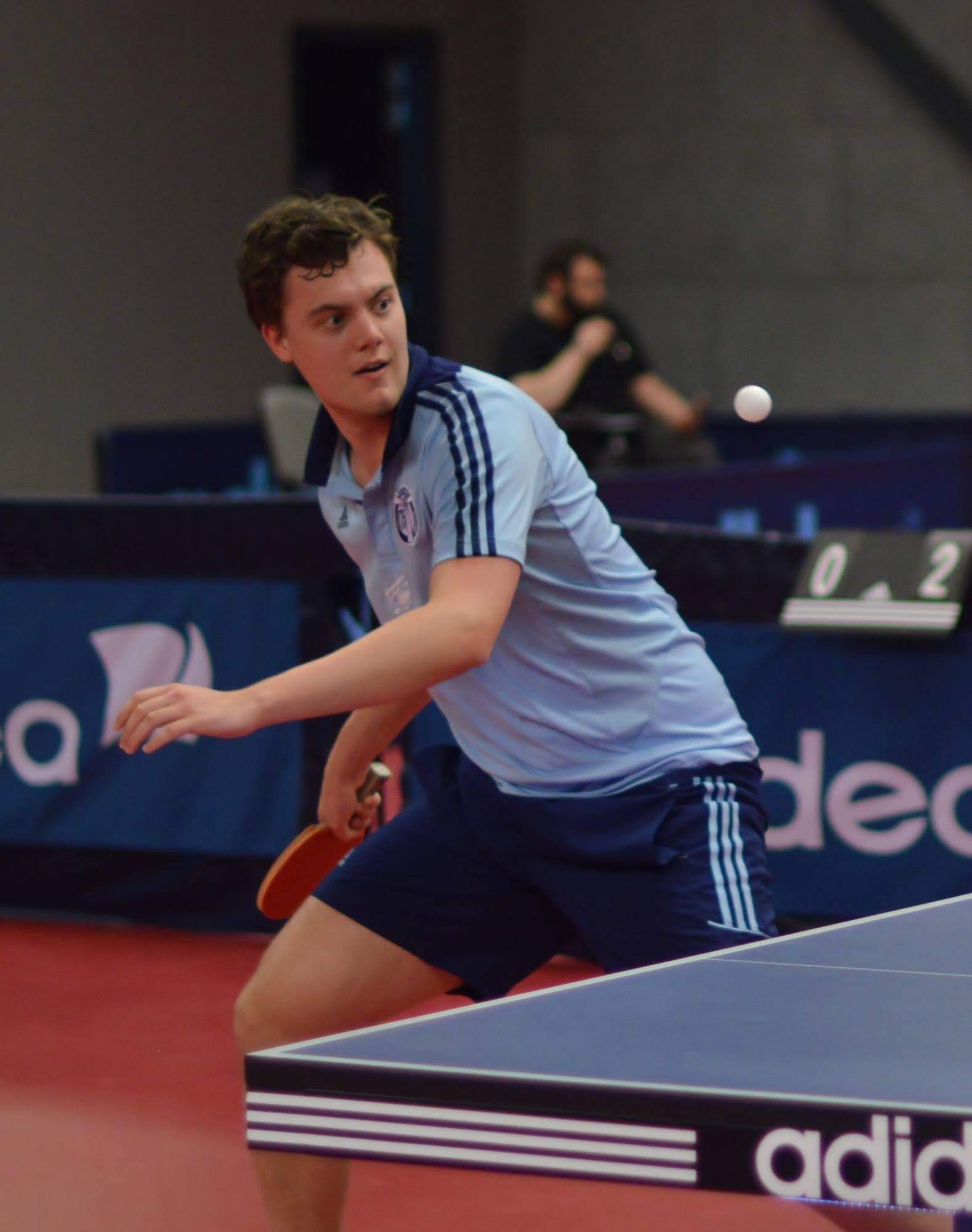EUSA Insider:
Emil Jangvik
Age: 25
Place of Birth: Askim, Sweden
University: Univesity of Gothenburg (SWE)
Sport: Table Tennis Published 26 April 2019
How and why did you get involved in table tennis?
The first time I encountered table tennis was in third grade at school. The school I went to had an initiative where the pupils got the chance to try three sports at the local sport clubs and table tennis was one of those sports. I was hooked immediately and started to attend beginners training. Until the age of 14 I trained table tennis, tennis and football, however table tennis was the only sport that I fell in love with, so I choose to only focus on that and specialise in the sport.

What do you study, and how do you balance your study, training and competition?
I studied at University for five years, a Bachelor’s degree in Business Administration and a Master’s degree in finance. Balancing between sports and studies is a challenge, but very possible to do. It requires discipline and planning so it helps if you surround yourself in a team/club that is understanding of the situation. During the two year of my Master’s studies I had to cut down on training significantly, but it was more a question of me prioritizing my grades. Today I work in Investment Banking and I believe that learning to combine two serious “projects” such as sports and studies both landed me the job I have and helps me perform at a high level in my new career.
Tell us about your experiences at the European Universities Games 2018. Was it your first time at a EUSA event, and what did you enjoy the most?
EUG at Coimbra 2018 was my second EUSA event, following the EUSA Table Tennis Championships at Olomouc 2017 (and third event counting the Universiade in Gwangju, Korea, 2015). Considering that the EUG is larger than one could imagine with several thousand participants, there are a lot of things going on, so I was kind of in a bubble as long as the table tennis tournament lasted, which obviously also was the highlight for me. Winning the bronze medal in the team competition made the entire team euphoric for the entire visit which I am sure was noticed by other nationalities and sports in a positive way. Another thing that one must experience during these types of events is visiting other sports. To see the sports at the main arena and to socialise with other participants after the matches is a great experience where you get to meet international like-minded people.
Why do you think taking part in university sport is important?
First, I believe it is healthy for the mind and body to not only focus on one thing, such as studies or sports. Secondly, university sport can provide you with unique experiences and introduce you to people others never get the chance to. I cannot recommend participating in university sport events enough!
“To see the sports at the main arena and to socialise with other participants after the matches is a great experience where you get to meet international like-minded people.”
In 2019 the European Universities Table Tennis Championships will take place in Camerino, Italy. Do you hope to be there, and if so, how have your preparations been, and what do you hope to achieve?
Unfortunately, I will not be able to participate as I and my team have graduated. However, I hope to participate in many more events in the future, either as a coach or team leader.
What is your favorite university sport moment?
Two moments! Winning the bronze medal at the team event in Coimbra is number one. We were seeded to finish in the bottom of our group but finished first, and later advanced into the semis where we eventually lost to the tournament winner. One should also consider that all four of the players in my team lost in the round of 128 and round of 64 in the singles tournament (a bit unlucky draws, but still) so the team achievement was extraordinary. Secondly, walking into the opening ceremony at Gwangju Stadium during the 2015 Universiade with team Sweden and 50–60 000 in the stands is something that I will never forget.
“I cannot recommend participating in university sport events enough!”
What is your message to European student-athletes like yourself?
Do not stress with your studies – it is possible to combine the two if you want to! However, if you are more motivated doing sports than studies, take the opportunity to train as much as possible. Sport is (unfortunately) difficult to postpone due to age, but it does not matter if you take a year or two extra to finish your degree.
EUSA would like to congratulate Emil and his team for their success last year and we wish him all the best for the future!
